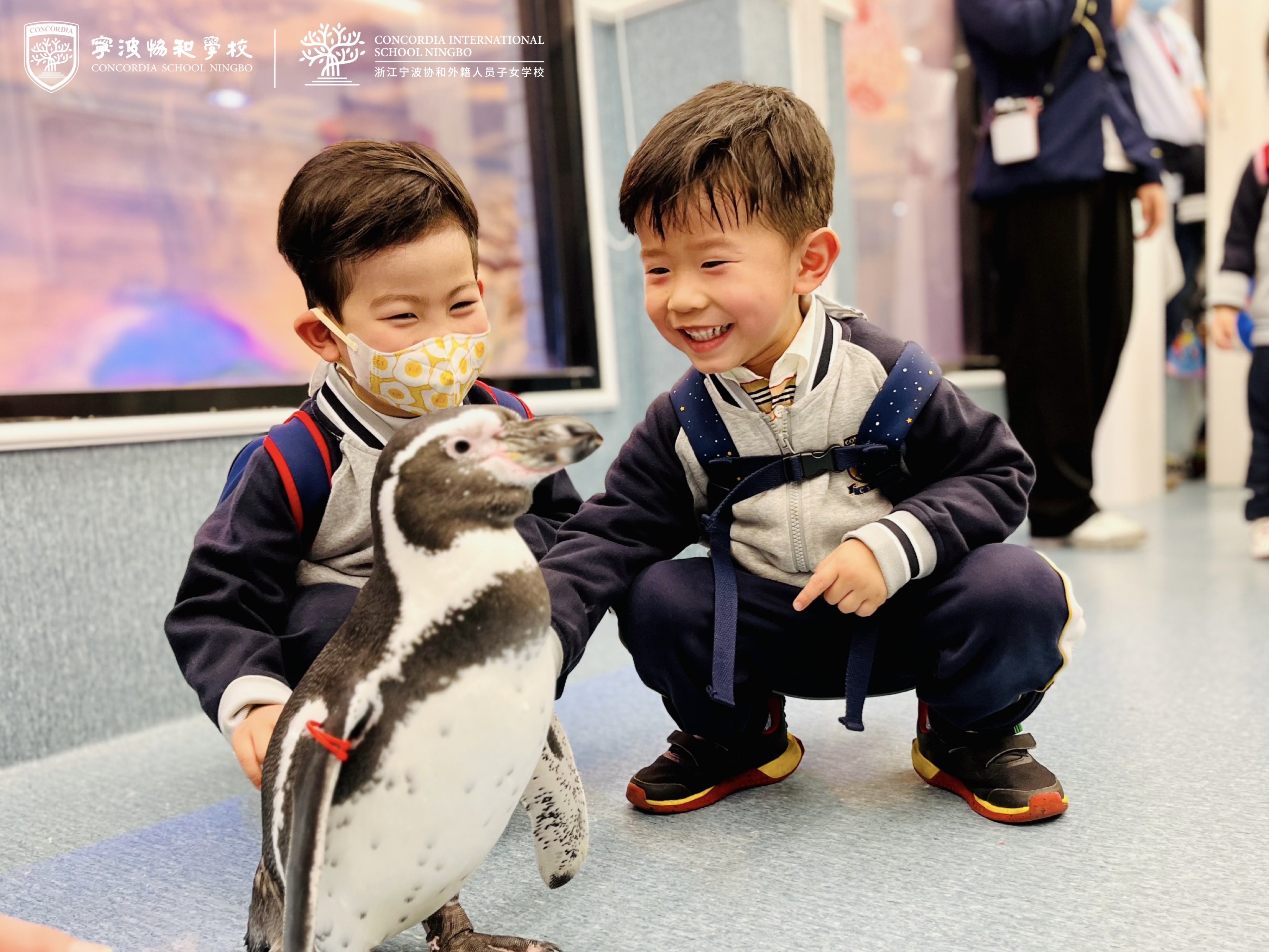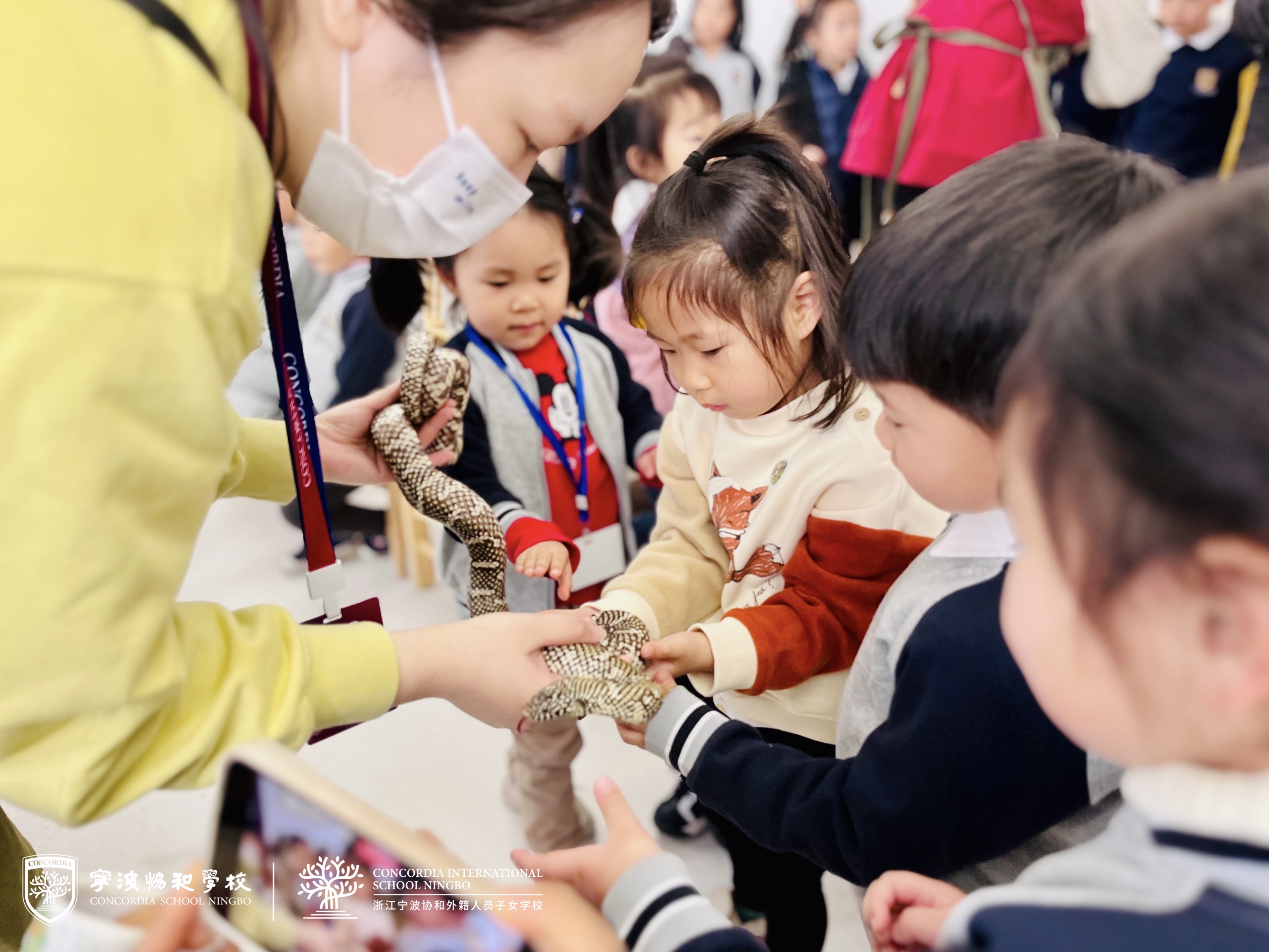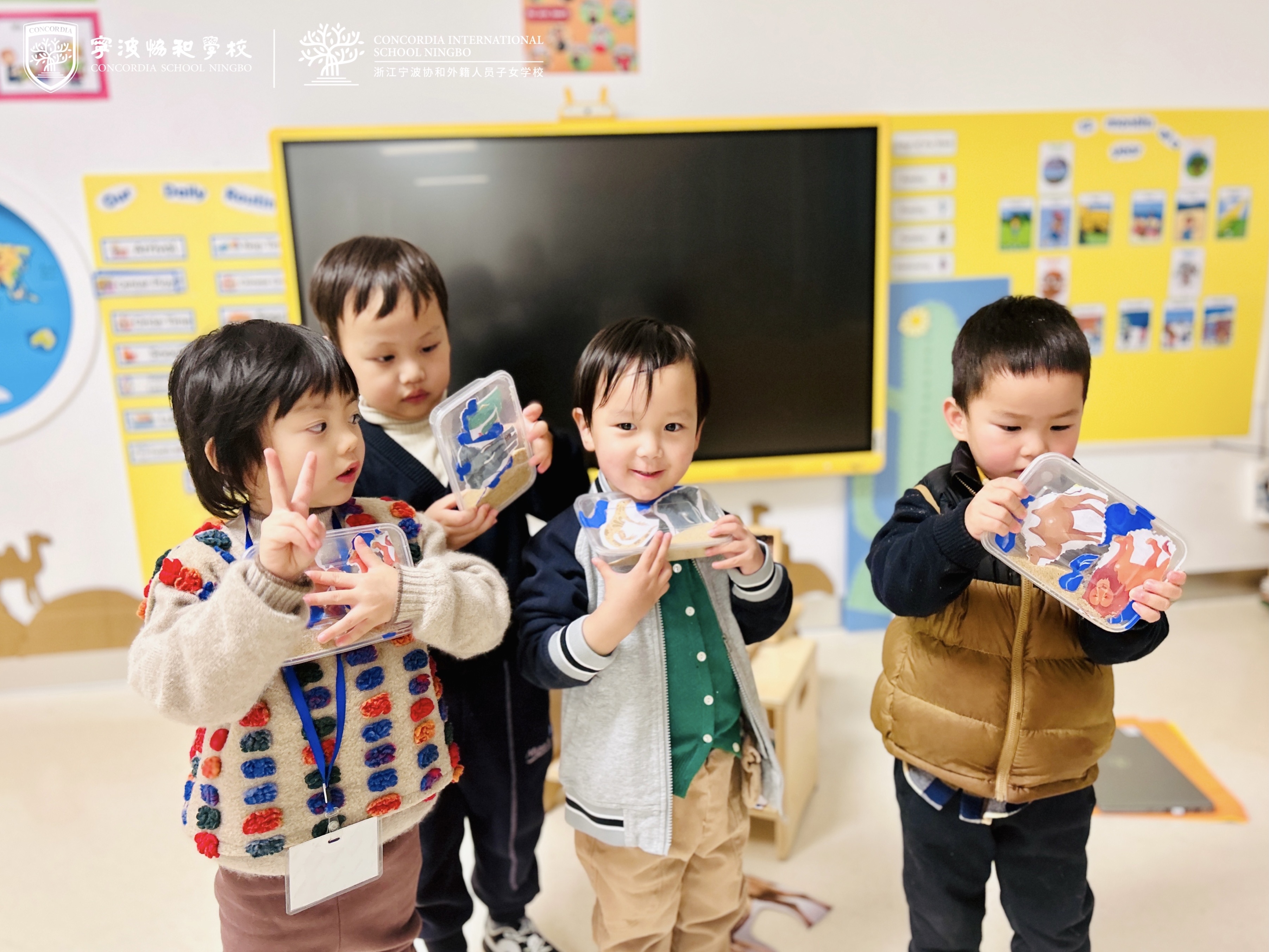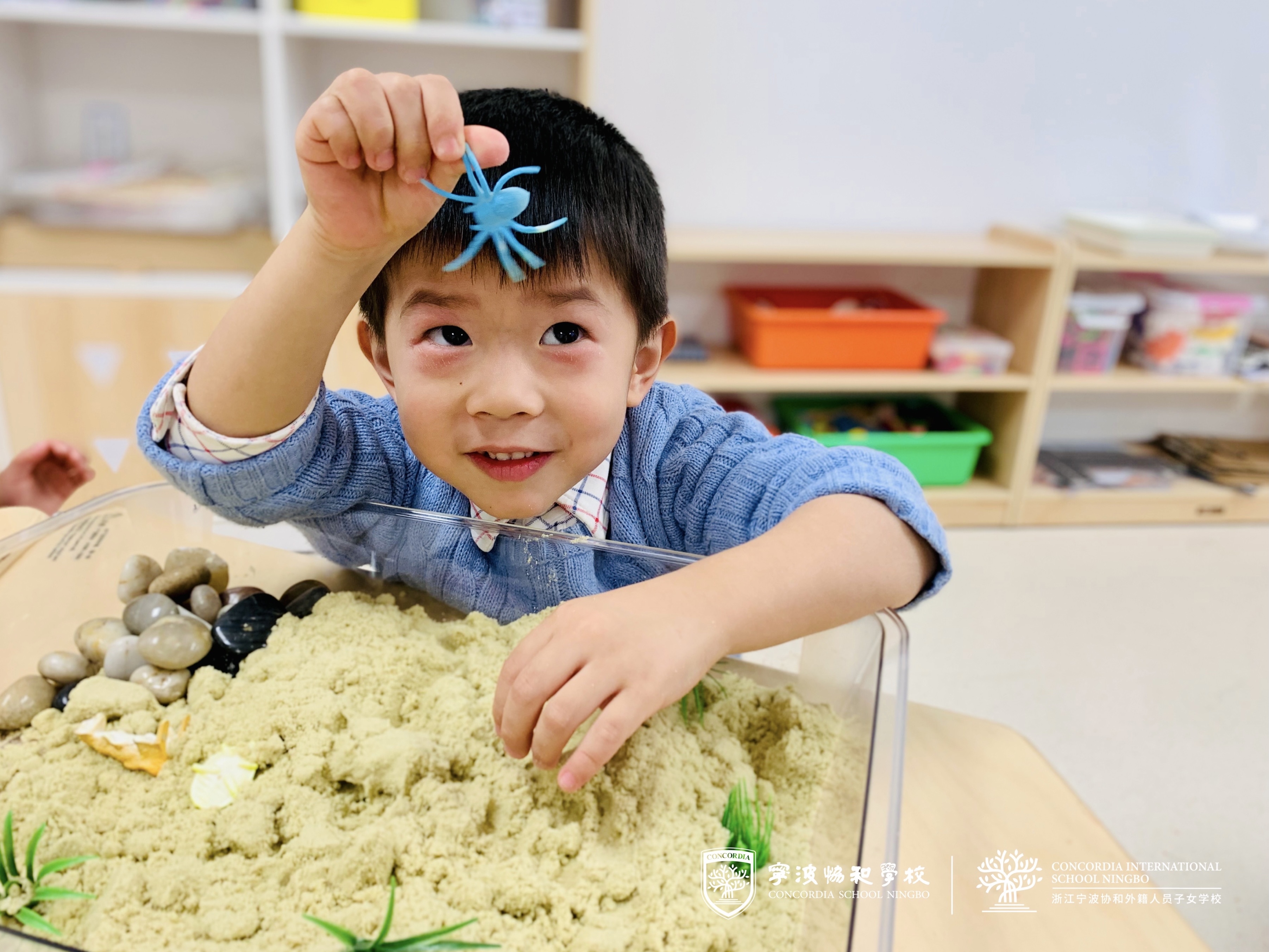

In Concordia, we create a Reggio-inspired curriculum that follows children's interests and pays attention to each individual through visual learning. Teachers are not only guides and recorders of children's learning, but also their inquiry assistants and partners. Today, let's follow the perspective of Mrs. Reby and Mr.Vava from K1B and enter the PBL theme course of "Exploring the Animal Kingdom·Sharing the Same Earth"

Animal exploration for young children is a comprehensive learning process
Harvard University scientist E.O. Wilson put forward the "biophilia" hypothesis that human beings have an innate desire to be close to animals and plants.
As humans, young children have an animalistic nature. Exploring animals can bring children closer to nature, allowing them to not only understand and appreciate animals but also to discover themselves. As children, they are constantly discovering and exploring animals in their surroundings or engaging in animal breeding, which provides a comprehensive learning experience.
There are two spatial situations for animal exploration in kindergarten: one is to take children to the real natural environment outdoors and explore animals through search and discovery; the other is to introduce animals from outside the park into the park or bring outdoor animals back to the classroom for breeding, and explore animals in the process of feeding.
Either way, it must be clear that animal exploration in kindergartens ultimately serves early childhood development and curriculum practice, focusing on the sense of experience and exploration
in the process.

Concord's PBL course
Give full play to self-efficacy and internal drive
Therefore, K1 launched the Regio core teaching method - "Explore the animal kingdom, share the same earth" PBL theme course, focusing on "Farm animals, Jungle animals, Ocean Animals, Desert Animals" Six animal types, including Arctic Animals, and Endangered Animals, carry out the exploration activities of this unit. Let children understand the boundaries and respect between humans and animals in diversified and multi-way exploration activities.
In the animal exploration themed course, animals are not only the subject of study but also the recipients of care from young children. Through the process of exploring animals, teachers guide children to learn how to respect and care for animals, helping them establish a positive and ethical view towards animals, and clarifying the fundamental relationship between themselves and animals. Let's start the journey of animal care and exploration with young children.

What conditions are needed for animals to survive?
Animals need air, water, food, shelter and living space. The first step in understanding an animal
is to understand its environment. The environment in which the animal lives is called its habitat.
In the course, we discussed four kinds of animal habitats: forests, savannas, oceans, and the Arctic. Plants, animals, and even human habits largely depend on their environment, which presents its own characteristics. For example, polar bears seek shelter in caves because there are no bushes or trees in the Arctic. Sharks have special scales that allow them to swim faster in the sea. In order to survive, all creatures must adapt to their habitat.
In the themed course, children discuss, raise problems, find solutions, explore ways to solve problems, and gain a deeper understanding of animals. These learning activities are based on regional games, environmental projects, and other initiatives. They not only stimulate children's curiosity but also enhance their awareness of animal and environmental protection, as well as their understanding of ecosystem functions.
It comes from life and is happy to live. We hope that through these interesting PBL projects, children will always be curious, have the courage to explore, give full play to their self-efficacy and internal drive, and truly become the masters of learning!

Concordia International School Ningbo serves students from age 3 to age 18 and provides a rigorous, globally focused education that fosters inquiry, knowledge empathy, and nurtures a lifelong love of learning.
Concordia International School Ningbo
+86(0)574 8807 6699
No.18 Guangfu street,Yinzhou District,Ningbo
Concordia International School Ningbo All right reserved.

朱经理
86-139-8933-7302